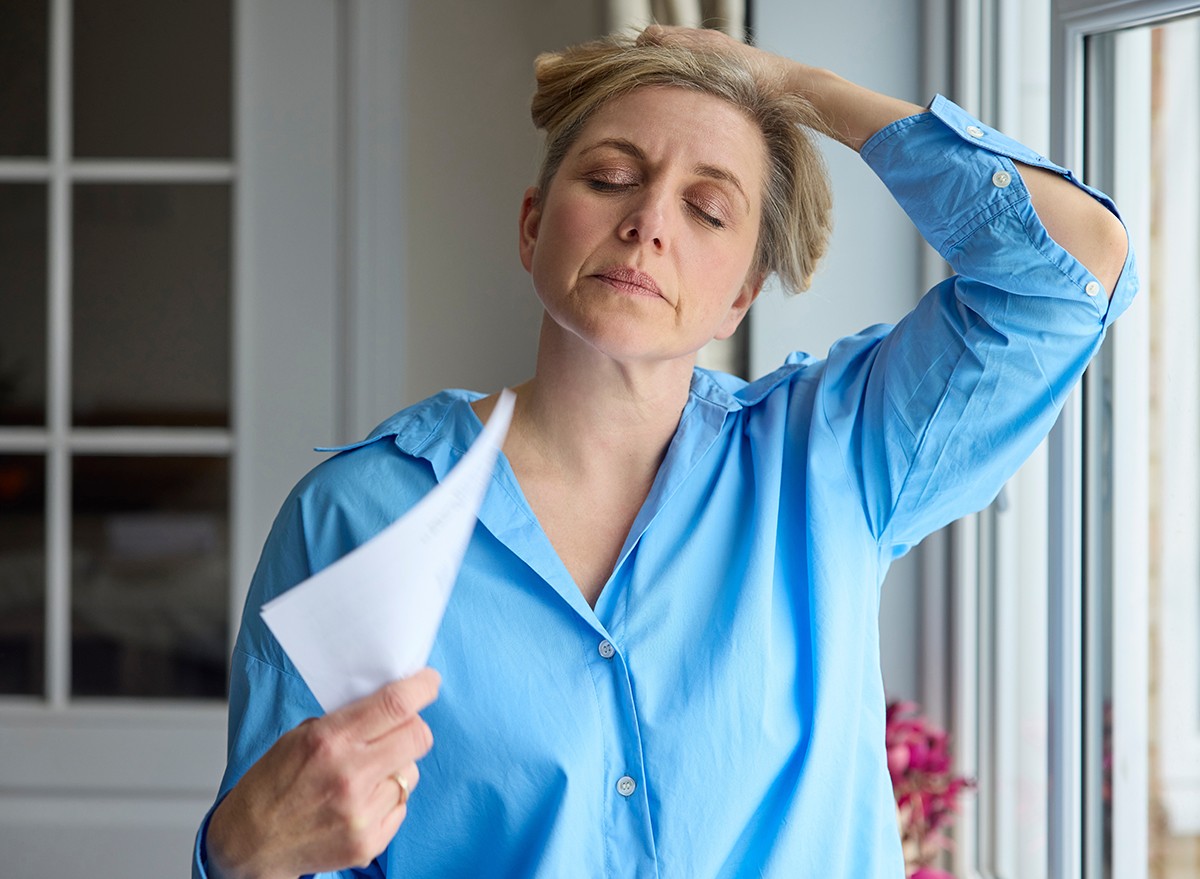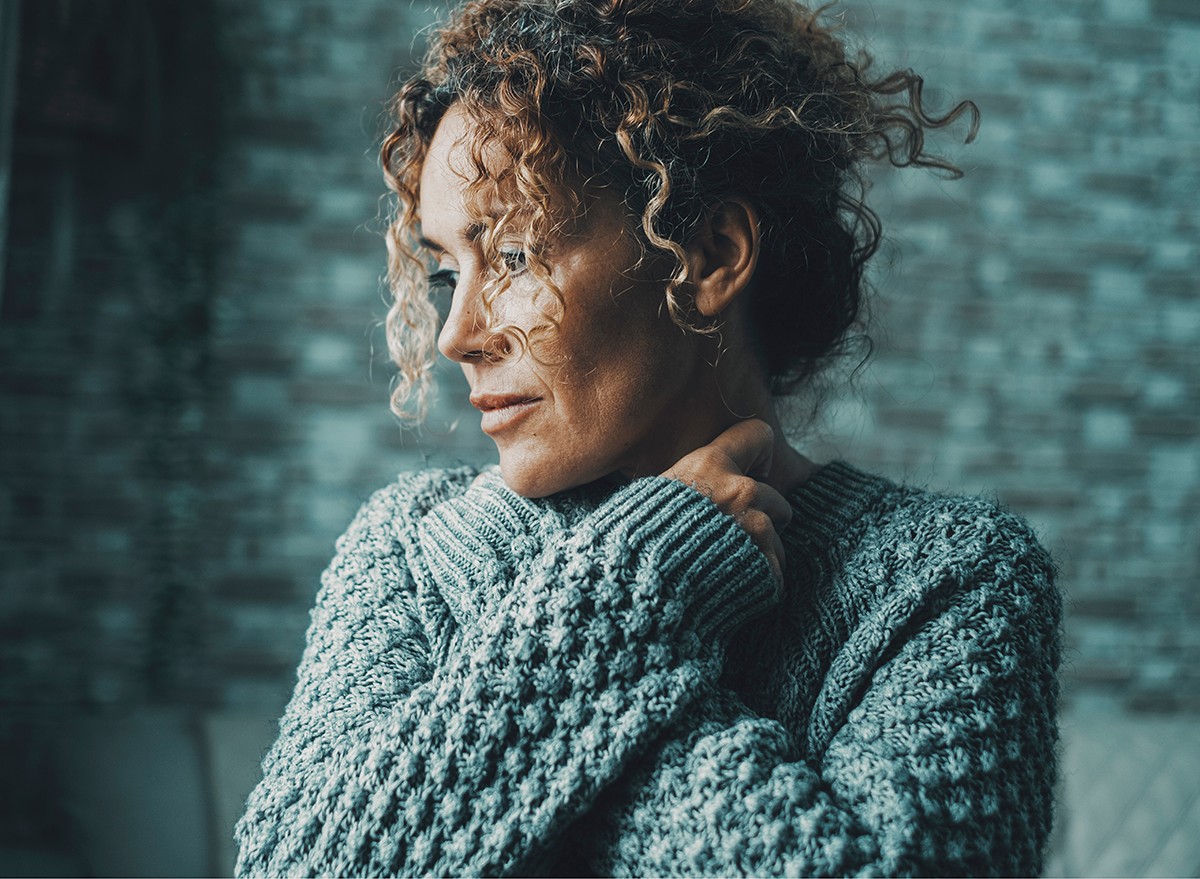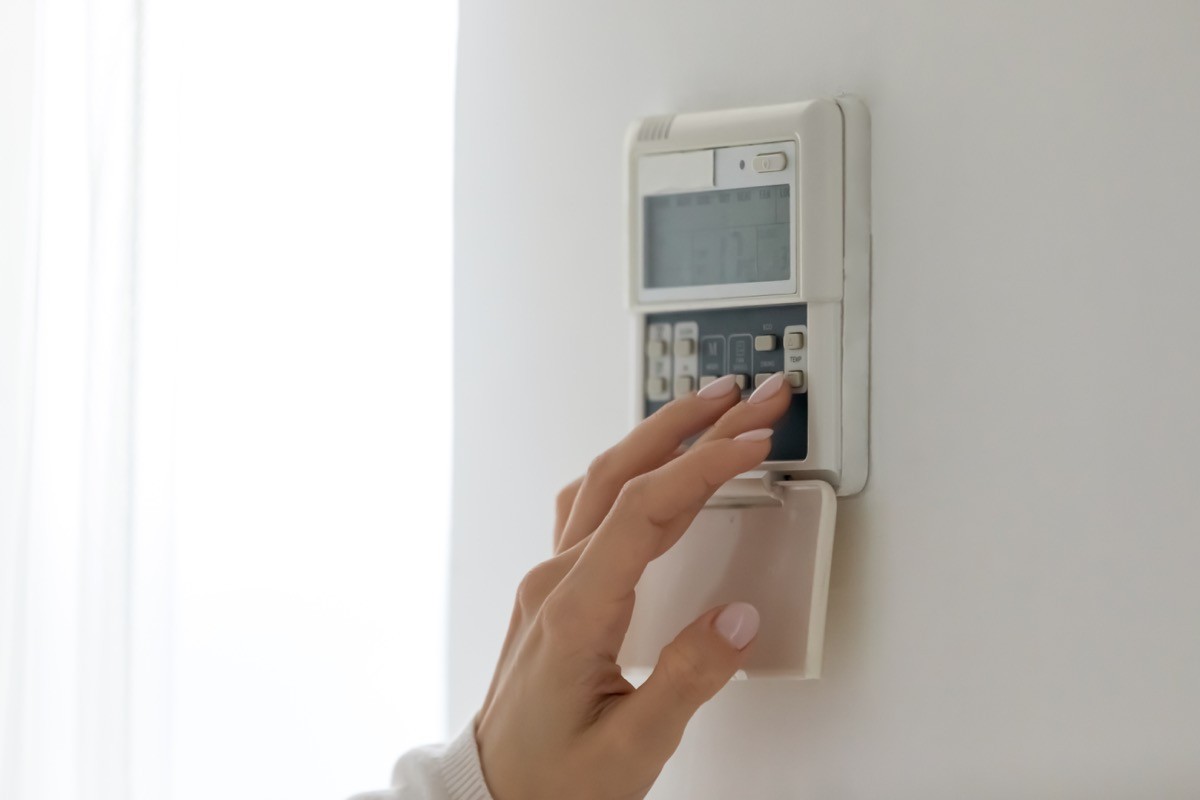Doctors Share the No. 1 Way to Relieve Menopause Hot Flashes Naturally

Hot flashes connected to menopause can be debilitating—especially when they undermine your sleep. “If hot flashes happen throughout the night, they wake you up and disrupt your sleep. As a result, you’re tired all the time, and it can greatly impact your quality of life. In some women, hot flashes are accompanied by anxiety, heart racing, or palpitations, which can interfere with their jobs and relationships,” Hugh Taylor, MD, chair of Yale Medicine Obstetrics, Gynecology & Reproductive Sciences, tells Yale Medicine. “We shouldn’t trivialize hot flashes. And I’m afraid that a term like hot flash makes it sound not as bad as the reality. For some women, these symptoms can be disabling.”
RELATED: Struggling With Belly Fat After Menopause?
Hot Flashes Before and Postmenopause

Hot flashes can start happening as early as perimenopause, and for some women, can continue for decades. “We used to think that, for more than two-thirds of women, all hot flashes recede and eventually go away within five years of menopause onset,” says Lubna Pal, MBBS, MS, a Yale Medicine reproductive endocrinologist and infertility specialist. “We now have better clarity. For some women, hot flashes may continue into their 60s and 70s.”
What Causes Hot Flashes?

Hormonal changes associated with menopause trigger the hot flashes, which are often followed with chills. “The underlying causes and triggers of hot flashes are not completely understood, but we know that the hormone estrogen is relevant,” says Dr Pal. “The fluctuations in estrogen levels in perimenopause and the loss of ovarian estrogen at menopause play a role. When the body has dropping estrogen levels, the temperature fluctuates more.”
Natural Remedies

There are ways to relieve hot flashes naturally—lowering the temperature in your bedroom and wearing loose, airy clothing can help with the symptoms of menopause. There is also promising evidence that cognitive behavior therapy (CBT) can help with hot flashes.
What Is CBT?

So what exactly is CBT, and how can it help with hot flashes? “It’s an evidence-based psychological and behavioral treatment that involves talk therapy,” clinical health psychologist Sheryl Green, PhD, tells Prevention. “During CBT, a trained mental health care provider helps a patient identify inaccurate beliefs or negative ways of thinking about a situation and provides skills and tools to replace those beliefs with more accurate and balanced ways of thinking. Behavioral strategies are taught as well so people learn to respond to situations in a more helpful way.”
RELATED: 7 Best Menopause Supplements.
Results Within Weeks

Research shows CBT can help with hot flash symptoms in a relatively short amount of time. “It depends on the severity and the number of symptoms being targeted,” Dr Green says. “In arandomized controlled trial we did in 2019, after 12 weekly sessions there were significant improvements in hot flashes, depression, sleep difficulties, and sexual concerns. Someone with mild or fewer symptoms usually needs fewer sessions.”
What Else Helps?

Here are some lifestyle changes that can help, according to the National Institute on Aging (NIA):
- Dress in layers that can be removed at the start of a hot flash.
- Carry a portable fan to use when a hot flash strikes.
- Avoid alcohol, spicy foods, and caffeine. These can make menopausal symptoms worse.
- If you smoke, try to quit, not only for hot flashes, but for your overall health.
- Try to maintain a healthy weight. Women who are overweight or obese may experience more frequent and severe hot flashes.
- Explore mind-body practices. Some early-stage research has shown that hypnotherapy and mindfulness meditation could help with management of hot flashes.